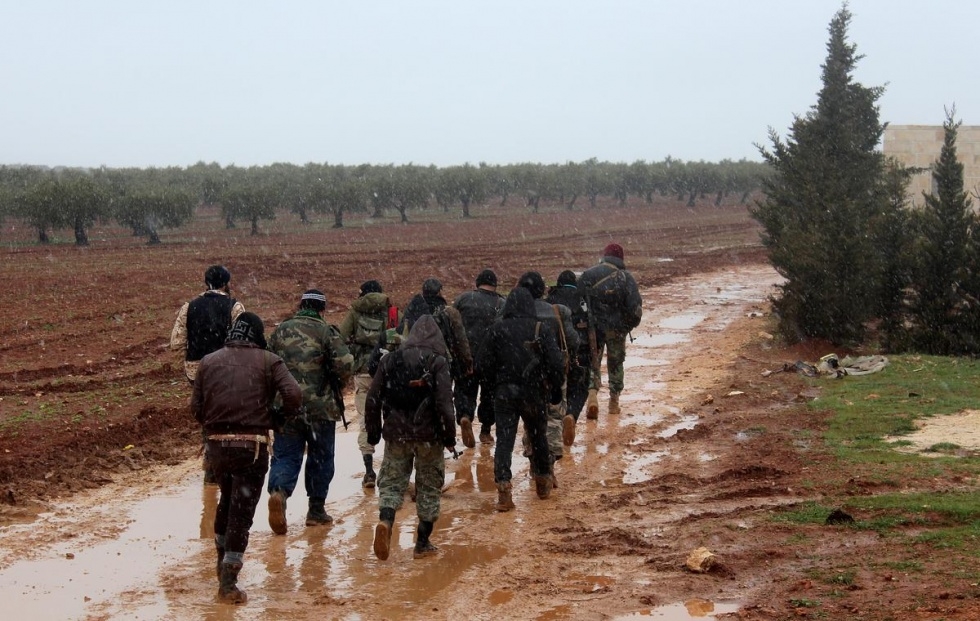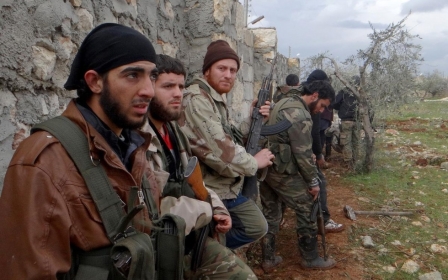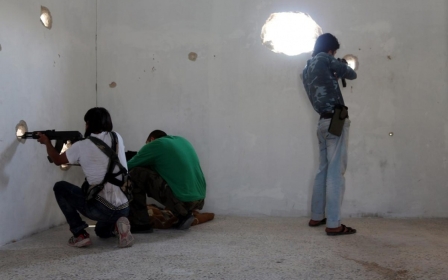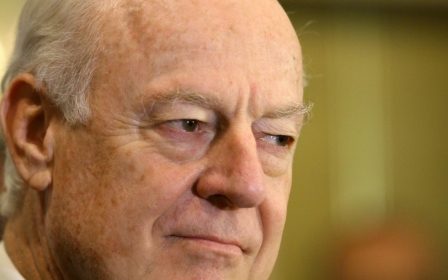In strategy shift, US to train Syrian opposition fighters against IS

In a major shift in US Syria strategy months in the making, US officials said Monday that the country will protect Syrian opposition fighters once they are trained and begin fighting against the Islamic State group.
General John Allen, who coordinates US coalition efforts against IS, said when the 2015 training of 5,000 fighters is complete, and a total of roughly 15,000 during the next three years, the US will provide air strike support.
“Not only we will train them, we will equip them with the latest weapons systems, but we will also protect them when the time comes,” said Allen, who spoke at the Atlantic Council, a Washington think tank.
Allen said he is “surprised at the numbers “of Syrian opposition fighters who are willing to fight against IS."
Previously, the US had sought to strengthen what it termed 'moderate' opposition groups in a bid to weaken Syrian President Bashar al-Assad.
But in recent months, as the New York Times has reported, the US has taken actions - bombing IS militants and assuring Assad through Iraqi intermediaries that he is not targetted - that both Assad's supporters and opponents have taken as evidence that the Americans are no longer pursuing his ouster.
The implementation of this slow-burning change in strategy comes weeks after reports emerged that US weapons and cash supplies to some rebel units had dried up, with the group's leaders criticising the US for failing to follow through on promised support.
Harakat al-Hazm was one of the groups that complained that CIA funding for their soldier's wages, part of a covert operation, had declined in recent months. On Monday, the group announced that it had disbanded following clashes in Aleppo over the weekend with al-Qaeda's Syrian affiliate al-Nusra Front.
“The US is damping down support for people it previously called allies in the north at the exact moment that they’re most vulnerable,” Evan Barrett, an adviser to the Coalition for a Democratic Syria, a Syrian-American opposition group with links to rebel forces told Middle East Eye last month. “It’s an ongoing story of the US being a bad and duplicitous partner.
“Whether it’s the CIA covert programme, that’s implemented with the Gulf countries, or now the Pentagon’s new train-and-equip programme, everything is irregular and less than advertised.”
But Christopher Hammer, a military analyst with the Washington-based Institute for the Study of War, said the US "is throwing in the towel on something that has been clearly ineffective . . . It has lost the fight in the north in terms of establishing a functional moderate rebel army and is switching resources away from that."
Turkey, Saudi Arabia and Qatar have agreed to the new US training programme for the opposition which will be held in Turkey and is set to begin in about a month.
“I won’t put a certain date on when the training will begin, but our assessment is that we could be ready sometime within the next four to six weeks to begin actual training,” Pentagon spokesman Read Adm. John Kirby said Friday.
About 1,500 Syrian rebels have been screened and as many as 5,500 Syrians will be trained after about one year, Kirby said.
Kirby has previously referred to the prospect of employing Syrian rebels as forward air controllers who will direct US military planes to designated targets.
“I can’t rule out that at some point, we might find it useful for them to have the ability to help assist with targeting on the ground,” he said.
Radwan Ziadeh, the executive director of the Syrian Centre for Political and Strategic Studies, has criticised the programme as lacking political strategy.
“It’s seen only as the UN sending missionaries to train Syrian fighters and sending them to fight against IS,” Ziadeh told the Middle East Eye.
“There’s a lack of political strategy in how that links the political opposition to the fight against the Assad government," he said. "This is only part of the puzzle which will involve the US to [think of] a grand strategy on how to end the Syria crisis and to put Syria back on the transitional path to democracy.”
New MEE newsletter: Jerusalem Dispatch
Sign up to get the latest insights and analysis on Israel-Palestine, alongside Turkey Unpacked and other MEE newsletters
Middle East Eye delivers independent and unrivalled coverage and analysis of the Middle East, North Africa and beyond. To learn more about republishing this content and the associated fees, please fill out this form. More about MEE can be found here.




